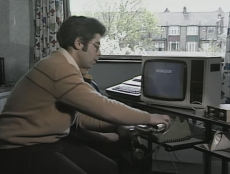
Higher Education
Industry News
K-12
Free Online SAT Prep Sites Are Attracting Parents Skeptical of High-Ticket Tutors
By Cait Etherington
March 03, 2019
In many U.S. cities, if you have a child preparing to write the SAT, your monthly tutoring costs can easily exceed what many American families spend on housing. According the U.S. Census Bureau, on average, Americans spend $1550 per month on housing (this includes mortgage and other recurring payments). In cities like New York and San Francisco, however, SAT tutors typically charge $150 to $300 per hour and many force parents to sign monthly contracts for a minimum of 8 hours. This means that it’s not unusual for parents to spend anywhere from $1200 to $3000 on tutoring each month and some parents spend much more. At least one New York City tutor charges $1500 per hour. But do high-ticket tutors really deliver more than their free online SAT prep alternatives?
Both Sides Are Making Claims, but Where’s the Comparative Research?
Visit the website of any SAT tutoring agency, and you’ll find claims about their impact on students’ scores. Some agencies claim to help students raise their scores by 150 points on average and others claim to have an even greater impact. What these agencies rarely do is offer raw data to back up their claims.
Free online alternatives also make claims about their impact on students’ SAT scores. While most online alternatives also fail to share data to support their claims, at least one free online alternative does have data to back up its impact statement. The Khan Academy not only has a large sample to base its claims upon but also works directly with the College Board, which oversees the SAT. In fact, many students log on to Khan Academy’s SAT portal through the College Board website. So, what does the Khan Academy’s and the College Board’s combined data reveal?
As of 2017, Khan Academy found that students who spend at least 20 hours preparing for the SAT on their site raise their SAT scores by 115 points. Students who spend just 6 hours preparing also see a considerable bump–on average, they raise their scores by 90 points. In addition, 16,000 students from the class of 2017 who used Khan Academy’s Official SAT Practice improved their scores by more than 200 points.
Of course, even Khan Academy’s compelling statistics raise a lot of questions. We don’t know if the students relying on the Khan Academy to prepare for the SAT were also working with private SAT tutors. We also have no way to compare the impact of 20 hours of private tutoring to 20 hours spent doing SAT practice exercises and tests on the Khan Academy site. Notably, at the time of writing this article, I found no evidence-based studies comparing these two common approaches to SAT prep.
Even As Cultural Norms Prevail, Some Parents Are Opting for Free Online SAT Prep
To find out what types of decisions parents are making, I reached out to five New York City parents. Two parents admitted that they had decided to rely on free online resources rather than a costly tutor. Interestingly, neither permitted me to use their full names for fear that parents and colleagues in their personal network would be critical of their decision to forego hiring a costly tutor. Dan, a Princeton graduate and attorney who lives on the Upper East Side, is currently helping his 16-year-old son prepare for the SAT. As he explained:
“There’s a presumption in many neighborhoods that this is just what you do for your kids. You wouldn’t send your kid to just any school or leave them with just any babysitter, so why skip the expensive SAT tutor? It wasn’t like this when I was growing up here, but it’s now assumed that if you’re a good parent, you’re going to spend $1500, $2000, or maybe $3000 a month for a year or two to get your kid in shape for the SAT. Of course, this isn’t most people’s reality in the United States. A lot of people don’t have that kind of disposal income, and I wish they didn’t think it was necessary to get their kid into a top school.”
Marian, a university professor who lives in the West Village with her daughter, agrees. “In this neighborhood, people have money. But even those who have less often spend thousands of dollars on private tutors to prepare their kids for the SAT,” she explained. “As a professor, I’m skeptical. Sure, you can pay a lot of money to prep your kid for the test, but if they’re not strong students, they’ll fail out of the competitive school they are admitted to. As an educator, I see this all the time.” Marian is also skeptical about the claims made by many tutoring agencies. “You can attempt to raise a kid’s score and may get it up from 1100 to 1300, but a kid who starts testing at 1100, is unlikely to ever get to 1500 or higher.”
For now, with little comparative research, parents are left to decide for themselves whether high-ticket tutors are more likely to offer a return on investment than free online SAT prep. What’s clear is that at least some educated parents are beginning to opt out.









No Comments